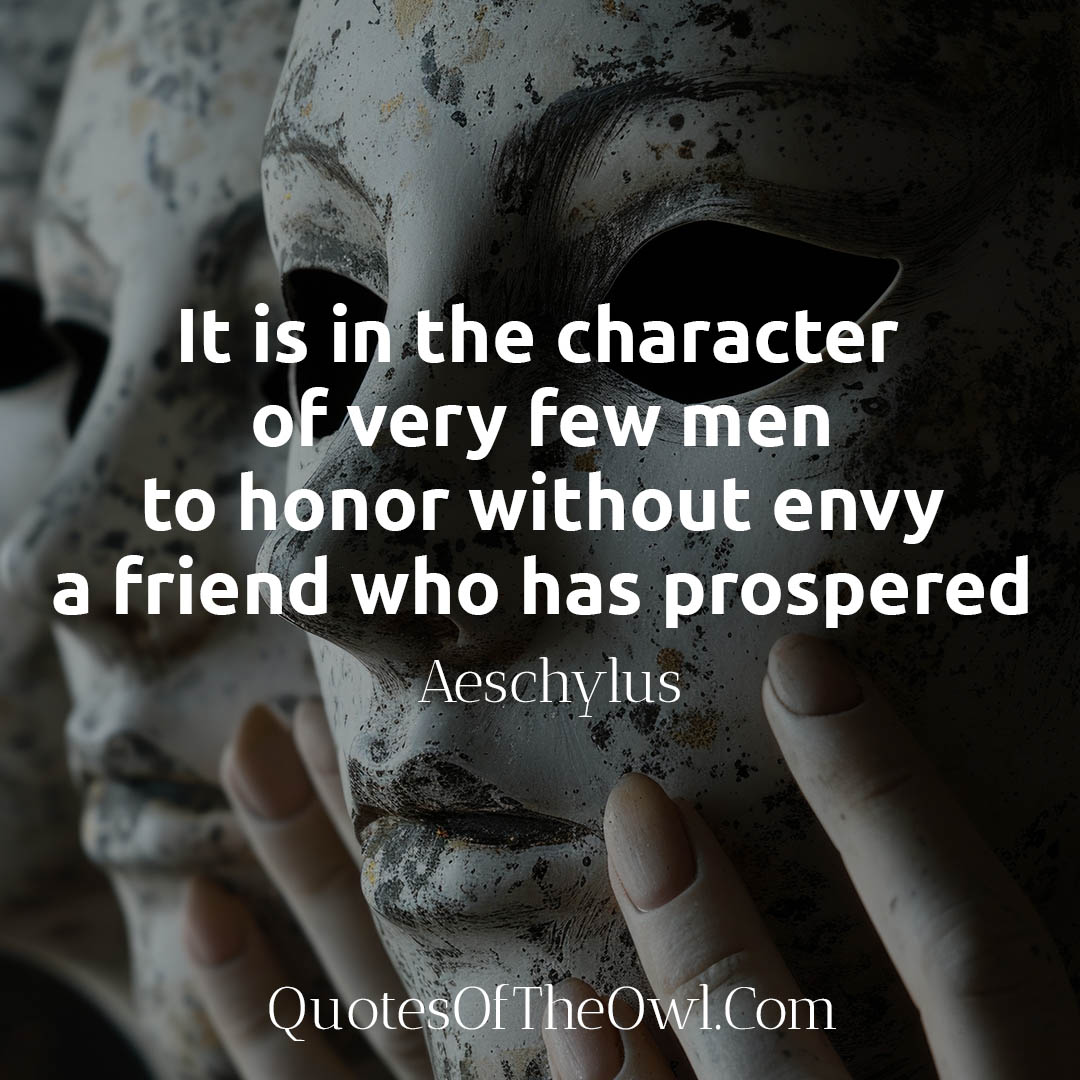It is in the character of very few men to honor without envy a friend who has prospered – Aeschylus
Aeschylus, the ancient Greek playwright, once stated, “It is in the character of very few men to honor without envy a friend who has prospered.” This profound statement delves into the complexities of human nature, particularly regarding friendships and success. In this article, we will explore the meaning behind this quote and its relevance in today’s world.
Understanding the Context
Aeschylus, born in 525 BCE, was one of the most prominent tragedians of ancient Greece. His works often explored themes of fate, justice, and the human condition. The quote reflects the societal dynamics prevalent during his time, where envy and honor played significant roles in interpersonal relationships.
Exploring the Meaning
At first glance, Aeschylus’ quote may seem cynical, suggesting that genuine honor towards a prosperous friend is a rare trait. However, a deeper examination reveals insights into human nature. Envy, an inherent emotion, can often cloud one’s ability to sincerely celebrate the success of others. True honor, devoid of envy, requires a level of maturity and selflessness that few possess.
Friendship Dynamics
Friendships are inherently complex, influenced by various factors including success and achievement. When a friend prospers, envy may arise, causing strain in the relationship. This dynamic challenges individuals to navigate their emotions and prioritize genuine support for their friends.
Cultivating Positive Relationships
Overcoming envy in friendships requires conscious effort and self-awareness. By focusing on empathy and celebrating each other’s successes, individuals can strengthen their bonds and foster a supportive environment. True friends recognize that success is not a zero-sum game and that uplifting each other ultimately benefits everyone involved.
Personal Reflections
Reflecting on Aeschylus’ quote, I recall instances where envy threatened to overshadow my friendships. However, through introspection and communication, I learned to overcome these feelings and genuinely celebrate my friends’ achievements. These experiences have enriched my relationships and deepened my understanding of true friendship.
Real-Life Examples
Throughout history and literature, there are numerous examples illustrating the challenges of honoring a prosperous friend without envy. From Cain and Abel in biblical narratives to the rivalry between Shakespeare’s characters, envy has long been depicted as a destructive force in relationships. However, there are also inspiring stories of friendship and support highlighting the potential for genuine honor amidst success.
The Role of Envy
Envy, while natural, can hinder personal growth and strain relationships. Acknowledging and addressing feelings of envy is essential for emotional well-being and maintaining healthy friendships. By cultivating gratitude and focusing on personal development rather than comparison, individuals can mitigate the negative effects of envy and foster a more positive outlook on life.
Building Trust and Support
Ultimately, honoring a friend’s success without envy requires trust, empathy, and a genuine desire for their well-being. By prioritizing open communication and actively supporting each other’s goals, friends can cultivate a strong foundation built on mutual respect and admiration. Celebrating achievements together strengthens the bond and reinforces the value of friendship.
Conclusion
In conclusion, Aeschylus’ quote serves as a reminder of the complexities inherent in friendships and success. While envy may pose challenges, genuine honor towards prosperous friends is attainable with self-awareness and empathy. By prioritizing support and celebrating each other’s achievements, individuals can cultivate meaningful relationships based on trust and mutual respect.

